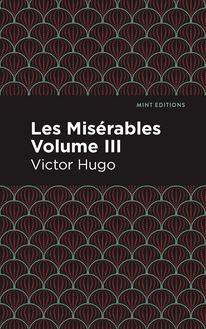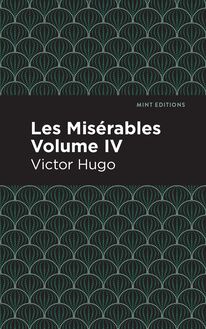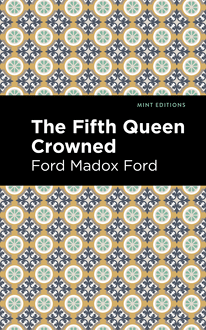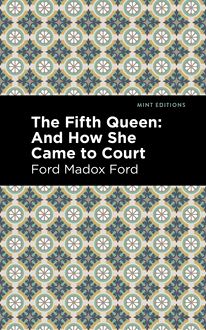-
 Univers
Univers
-
 Ebooks
Ebooks
-
 Livres audio
Livres audio
-
 Presse
Presse
-
 Podcasts
Podcasts
-
 BD
BD
-
 Documents
Documents
-
- Cours
- Révisions
- Ressources pédagogiques
- Sciences de l’éducation
- Manuels scolaires
- Langues
- Travaux de classe
- Annales de BEP
- Etudes supérieures
- Maternelle et primaire
- Fiches de lecture
- Orientation scolaire
- Méthodologie
- Corrigés de devoir
- Annales d’examens et concours
- Annales du bac
- Annales du brevet
- Rapports de stage
La lecture à portée de main
Vous pourrez modifier la taille du texte de cet ouvrage
Découvre YouScribe en t'inscrivant gratuitement
Je m'inscrisDécouvre YouScribe en t'inscrivant gratuitement
Je m'inscrisEn savoir plus
Vous pourrez modifier la taille du texte de cet ouvrage
En savoir plus

Description
After meeting during their travels, William Lovel, a young man, and Oldbuck, an antiquary, become good friends. Bonded over their shared interests, Lovel is very intrigued by Oldbuck’s collections, particularly by the elder man's latest find, an ancient book about Roman ruins. Impressed by the young man’s manners and intelligence, Oldbuck invites Lovel to meet some of his influential friends, including a wealthy man named Sir Arthur Wardour. While Lovel is delighted to meet Sir Wardour, he finds he is even more excited to see Isabella, Sir Wardour’s daughter. Having met before, both Isabella and Lovel are delighted at their reunion, and share an immediate connection. Despite their passion, the young lovers know that Sir Wardour would never approve of their relationship, due to Lovel’s mysterious birth origins. Assumed to be an illegitimate child, Lovel struggles to prove himself worthy in the eyes of Sir Wardour, motivated by his true love for Isabella, courage, and his dream of marriage. Told from Oldbuck’s point of view, The Antiquary by Sir Walter Scott is an intriguing tale featuring compelling and unique characters. Set during the last decade of the 18th century, The Antiquary portrays detailed and intimate attributes of the culture of the upper class, allowing modern readers to understand important aspects of Scottish history. With a touching and taboo romance, secrets, duels, and even the search of a lost treasure, Sir Walter Scott’s The Antiquary is adventurous and dramatic, sure to hold the heart, mind, and attention of its reader. This edition of The Antiquary by Sir Walter Scott now features a stunning new cover design and is printed in a font that is both modern and readable. With these accommodations, this edition of The Antiquary crafts an accessible and pleasant reading experience for modern audiences while restoring the original mastery and drama of Sir Walter Scott’s literature.
Sujets
Informations
| Publié par | Mint Editions |
| Date de parution | 14 mai 2021 |
| Nombre de lectures | 0 |
| EAN13 | 9781513285429 |
| Langue | English |
| Poids de l'ouvrage | 2 Mo |
Informations légales : prix de location à la page 0,0500€. Cette information est donnée uniquement à titre indicatif conformément à la législation en vigueur.
Extrait
The Antiquary
Sir Walter Scott
The Antiquary was first published in 1816.
This edition published by Mint Editions 2021.
ISBN 9781513280400 | E-ISBN 9781513285429
Published by Mint Editions®
minteditionbooks.com
Publishing Director: Jennifer Newens
Design & Production: Rachel Lopez Metzger
Project Manager: Micaela Clark
Typesetting: Westchester Publishing Services
I knew Anselmo. He was shrewd and prudent,
Wisdom and cunning had their shares of him;
But he was shrewish as a wayward child,
And pleased again by toys which childhood please;
As—book of fables, graced with print of wood,
Or else the jingling of a rusty medal,
Or the rare melody of some old ditty,
That first was sung to please King Pepin’s cradle
C ONTENTS V OLUME I I II III IV V VI VII VIII IX X XI XII XIII XIV XV XVI XVII XVIII XIX XX XXI V OLUME II I II III IV V VI VII VIII IX X XI XII XIII XIV XV XVI XVII XVIII XIX XX XXI XXII XXIII XXIV N OTES
VOLUME I
I
Go call a coach, and let a coach be called,
And let the man who calleth be the caller;
And in his calling let him nothing call,
But Coach! Coach! Coach! O for a coach, ye gods!
—Chrononhotonthologos
I t was early on a fine summer’s day, near the end of the eighteenth century, when a young man, of genteel appearance, journeying towards the north-east of Scotland, provided himself with a ticket in one of those public carriages which travel between Edinburgh and the Queensferry, at which place, as the name implies, and as is well known to all my northern readers, there is a passage-boat for crossing the Firth of Forth. The coach was calculated to carry six regular passengers, besides such interlopers as the coachman could pick up by the way, and intrude upon those who were legally in possession. The tickets, which conferred right to a seat in this vehicle, of little ease, were dispensed by a sharp-looking old dame, with a pair of spectacles on a very thin nose, who inhabited a “laigh shop,” anglice, a cellar, opening to the High Street by a straight and steep stair, at the bottom of which she sold tape, thread, needles, skeins of worsted, coarse linen cloth, and such feminine gear, to those who had the courage and skill to descend to the profundity of her dwelling, without falling headlong themselves, or throwing down any of the numerous articles which, piled on each side of the descent, indicated the profession of the trader below.
The written hand-bill, which, pasted on a projecting board, announced that the Queensferry Diligence, or Hawes Fly, departed precisely at twelve o’clock on Tuesday, the fifteenth July 17—, in order to secure for travellers the opportunity of passing the Firth with the flood-tide, lied on the present occasion like a bulletin; for although that hour was pealed from Saint Giles’s steeple, and repeated by the Tron, no coach appeared upon the appointed stand. It is true, only two tickets had been taken out, and possibly the lady of the subterranean mansion might have an understanding with her Automedon, that, in such cases, a little space was to be allowed for the chance of filling up the vacant places—or the said Automedon might have been attending a funeral, and be delayed by the necessity of stripping his vehicle of its lugubrious trappings—or he might have staid to take a half-mutchkin extraordinary with his crony the hostler—or—in short, he did not make his appearance.
The young gentleman, who began to grow somewhat impatient, was now joined by a companion in this petty misery of human life—the person who had taken out the other place. He who is bent upon a journey is usually easily to be distinguished from his fellow-citizens. The boots, the great-coat, the umbrella, the little bundle in his hand, the hat pulled over his resolved brows, the determined importance of his pace, his brief answers to the salutations of lounging acquaintances, are all marks by which the experienced traveller in mail-coach or diligence can distinguish, at a distance, the companion of his future journey, as he pushes onward to the place of rendezvous. It is then that, with worldly wisdom, the first comer hastens to secure the best berth in the coach for himself, and to make the most convenient arrangement for his baggage before the arrival of his competitors. Our youth, who was gifted with little prudence, of any sort, and who was, moreover, by the absence of the coach, deprived of the power of availing himself of his priority of choice, amused himself, instead, by speculating upon the occupation and character of the personage who was now come to the coach office.
He was a good-looking man of the age of sixty, perhaps older,—but his hale complexion and firm step announced that years had not impaired his strength or health. His countenance was of the true Scottish cast, strongly marked, and rather harsh in features, with a shrewd and penetrating eye, and a countenance in which habitual gravity was enlivened by a cast of ironical humour. His dress was uniform, and of a colour becoming his age and gravity; a wig, well dressed and powdered, surmounted by a slouched hat, had something of a professional air. He might be a clergyman, yet his appearance was more that of a man of the world than usually belongs to the kirk of Scotland, and his first exclamation put the matter beyond question.
He arrived with a hurried pace, and, casting an alarmed glance towards the dial-plate of the church, then looking at the place where the coach should have been, exclaimed, “Deil’s in it—I am too late after all!”
The young man relieved his anxiety, by telling him the coach had not yet appeared. The old gentleman, apparently conscious of his own want of punctuality, did not at first feel courageous enough to censure that of the coachman. He took a parcel, containing apparently a large folio, from a little boy who followed him, and, patting him on the head, bid him go back and tell Mr. B _____ , that if he had known he was to have had so much time, he would have put another word or two to their bargain,—then told the boy to mind his business, and he would be as thriving a lad as ever dusted a duodecimo. The boy lingered, perhaps in hopes of a penny to buy marbles; but none was forthcoming. Our senior leaned his little bundle upon one of the posts at the head of the staircase, and, facing the traveller who had first arrived, waited in silence for about five minutes the arrival of the expected diligence.
At length, after one or two impatient glances at the progress of the minute-hand of the clock, having compared it with his own watch, a huge and antique gold repeater, and having twitched about his features to give due emphasis to one or two peevish pshaws, he hailed the old lady of the cavern.
“Good woman,—what the d—l is her name?—Mrs. Macleuchar!”
Mrs. Macleuchar, aware that she had a defensive part to sustain in the encounter which was to follow, was in no hurry to hasten the discussion by returning a ready answer.
“Mrs. Macleuchar,—Good woman” (with an elevated voice)—then apart, “Old doited hag, she’s as deaf as a post—I say, Mrs. Macleuchar!”
“I am just serving a customer.—Indeed, hinny, it will no be a bodle cheaper than I tell ye.”
“Woman,” reiterated the traveller, “do you think we can stand here all day till you have cheated that poor servant wench out of her half-year’s fee and bountith?”
“Cheated!” retorted Mrs. Macleuchar, eager to take up the quarrel upon a defensible ground; “I scorn your words, sir: you are an uncivil person, and I desire you will not stand there, to slander me at my ain stair-head.”
“The woman,” said the senior, looking with an arch glance at his destined travelling companion, “does not understand the words of action.—Woman,” again turning to the vault, “I arraign not thy character, but I desire to know what is become of thy coach?”
“What’s your wull?” answered Mrs. Macleuchar, relapsing into deafness.
“We have taken places, ma’am,” said the younger stranger, “in your diligence for Queensferry”—“Which should have been half-way on the road before now,” continued the elder and more impatient traveller, rising in wrath as he spoke: “and now in all likelihood we shall miss the tide, and I have business of importance on the other side—and your cursed coach”—
“The coach?—Gude guide us, gentlemen, is it no on the stand yet?” answered the old lady, her shrill tone of expostulation sinking into a kind of apologetic whine. “Is it the coach ye hae been waiting for?”
“What else could have kept us broiling in the sun by the side of the gutter here, you—you faithless woman, eh?”
Mrs. Macleuchar now ascended her trap stair (for such it might be called, though constructed of stone), until her nose came upon a level with the pavement; then, after wiping her spectacles to look for that which she well knew was not to be found, she exclaimed, with well-feigned astonishment, “Gude guide us—saw ever onybody the like o’ that?”
“Yes, you abominable woman,” vociferated the traveller, “many have seen the like of it, and all will see the like of it that have anything to do with your trolloping sex;” then pacing with great indignation before the door of the shop, still as he passed and repassed, like a vessel who gives her broadside as she comes abreast of a hostile fortress, he shot down complaints, threats, and reproaches, on the embarrassed Mrs. Macleuchar. He would take a post-chaise—he would call a hackney coach—he would take four horses—he must—he would be on the north side, to-day—and all the expense of his journey, besides damages, direct and consequential, arising from delay, should be accumulated on the devoted head of Mrs. Macleuchar.
There, was something so comic in his pettish resentment, that the younger traveller, who was in no such pressing hurry to depart, could not help being amused with it, especially as it was obvious, that every now and then the old gentleman, though very angry, could not help laughing at his own veh
-
 Univers
Univers
-
 Ebooks
Ebooks
-
 Livres audio
Livres audio
-
 Presse
Presse
-
 Podcasts
Podcasts
-
 BD
BD
-
 Documents
Documents
-
Jeunesse
-
Littérature
-
Ressources professionnelles
-
Santé et bien-être
-
Savoirs
-
Education
-
Loisirs et hobbies
-
Art, musique et cinéma
-
Actualité et débat de société
-
Jeunesse
-
Littérature
-
Ressources professionnelles
-
Santé et bien-être
-
Savoirs
-
Education
-
Loisirs et hobbies
-
Art, musique et cinéma
-
Actualité et débat de société
-
Actualités
-
Lifestyle
-
Presse jeunesse
-
Presse professionnelle
-
Pratique
-
Presse sportive
-
Presse internationale
-
Culture & Médias
-
Action et Aventures
-
Science-fiction et Fantasy
-
Société
-
Jeunesse
-
Littérature
-
Ressources professionnelles
-
Santé et bien-être
-
Savoirs
-
Education
-
Loisirs et hobbies
-
Art, musique et cinéma
-
Actualité et débat de société
- Cours
- Révisions
- Ressources pédagogiques
- Sciences de l’éducation
- Manuels scolaires
- Langues
- Travaux de classe
- Annales de BEP
- Etudes supérieures
- Maternelle et primaire
- Fiches de lecture
- Orientation scolaire
- Méthodologie
- Corrigés de devoir
- Annales d’examens et concours
- Annales du bac
- Annales du brevet
- Rapports de stage




















